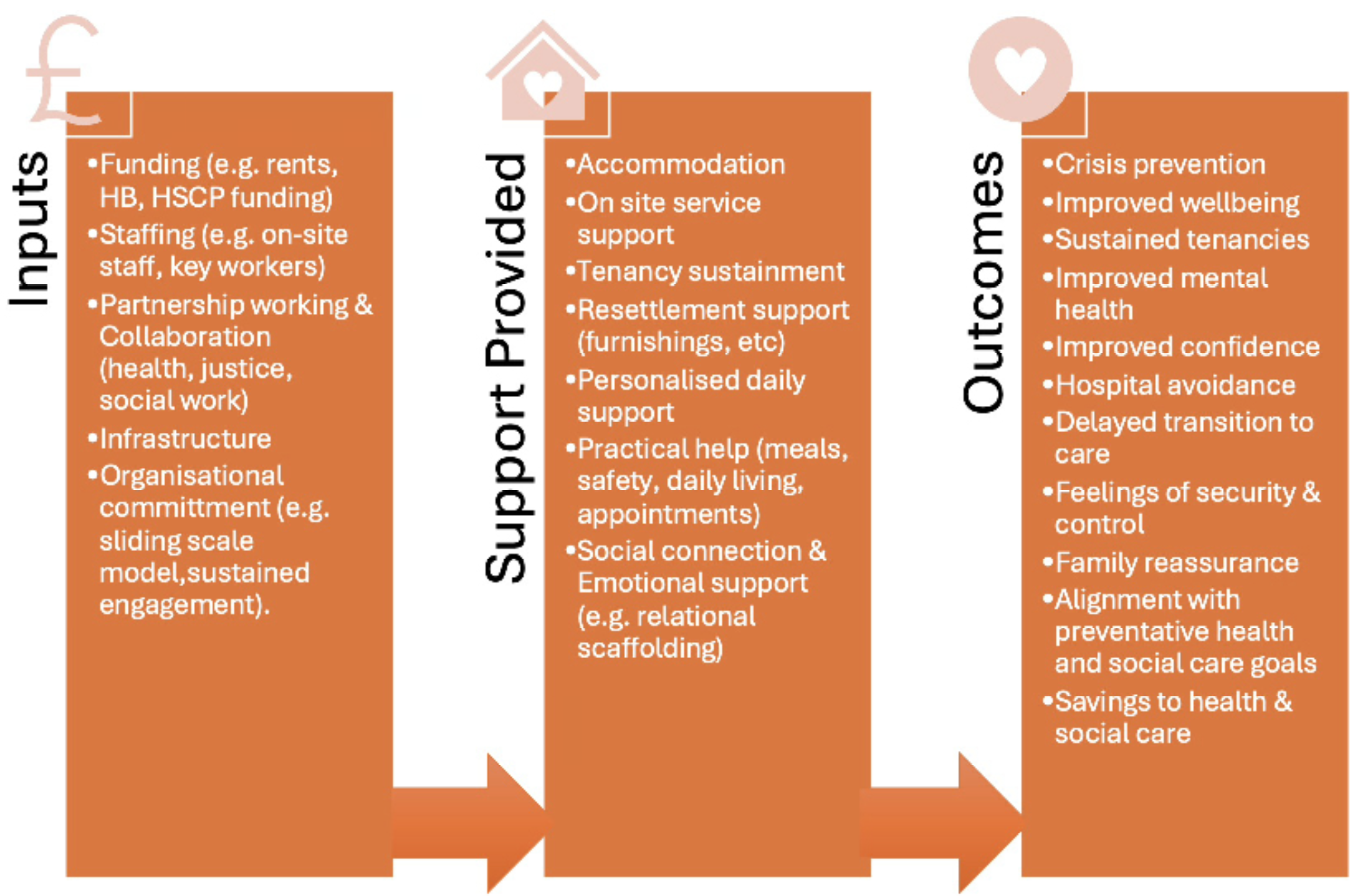Professor Kenneth Gibb: Housing Support in Scotland matters - let’s support these vital services

Professor Kenneth Gibb
UK Collaborative Centre for Housing Evidence (CaCHE) director Professor Kenneth Gibb highlights how Housing Support can return at least £4.85 of benefits for every £1 spent.
For several years, CaCHE and colleagues, namely Vikki McCall, have contributed a number of papers and studies in the wider area of housing support. This started with a series of papers on housing adaptations in 2022 and 2023, followed up by funded research on housing support more broadly, culminating with two papers, one in 2023 and one (last) week on the costs and benefits evidence on what housing support can provide in terms of net benefit after costs in relation to avoided costs to society and increase wellbeing for service users.
In the new report just published, we look at two typical case study of housing support services, one of very sheltered accommodation for older people and one providing tenancy sustainment services. These choices of case study were co-produced with our funders as quite standard forms of assistance and they were then carefully assessed working in partnership with our colleagues at HACT. The analysis generated large net economic or social benefits of more than 4:1 for the sheltered housing services and more than 12:1 for the homelessness prevention work.
Of course, we cannot generalise these findings to all housing support work, but they are strongly indicative of typical investments and service delivery across Scotland (see diagram below from the report). We do need more routine evidence collected to broaden this conventional cost benefit analysis (and the social impact work carried out by HACT). We also think that there are strong grounds to think that these may well be underestimates (see main report for details).

The research is a reminder to government that what are hyper-diverse and often fragile funded services have a major impact both preventatively reducing symptomatic costs for the like of the NHS and for homelessness services, as well as crucial wellbeing benefits for service users in terms of emotional and general welfare improvements.
The implication is that the sector needs to provide the monitoring and data collection (e.g. service user surveys) that will allow more of the evidence to be assembled across the different elements of housing support. But government and the political parties heading towards the Scottish election need to respond to this evidence and prioritise housing support. The evidence tells us that there is a significant payback and resources savings at a time of public finance difficulty and increasing need.
There is much support in general for prevention but a recognition that it can be hard to de-silo and to reward prevention activity. Yet, here are concrete examples of it working on the ground, where partnership work across housing, health and social care is doing it right now. We are making this visible through our new evidence and through other research (see our reviews of the literature in the new report and the one from 2023). The consistent levels of significant social returns demand a positive response – why wouldn’t we wish to prioritise funding here and support better and less fragile funding and delivery models?
- This article was originally published on the CaCHE website.



